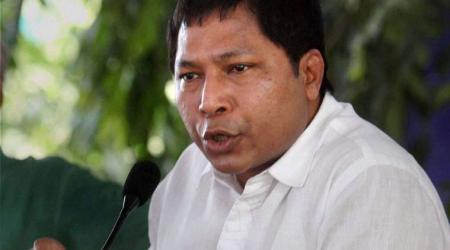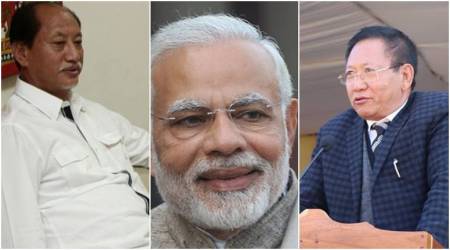 (Representational Image)
(Representational Image)
Since its inception in 1967, the BAIF Development Research Foundation has been working in the field of sustainable rural development. BAIF has brought many new technologies to the farm gate. Recently, Girish Sohani, president and managing trustee of the organisation, was appointed as “Commander in the Order of Agricultural Merit” by the Ministry of Agriculture, AgriFood and Forestry, Republic of France, for his contribution to agriculture. Sohani, a graduate from IIT-Mumbai, also holds a degree from IIM-Ahmedabad. His work has spanned across the fields of natural resource management, village production system, rural agribusiness and marketing, etc. In an interview with PARTHA SARATHI BISWAS, Sohani talks about the collaboration between BAIF and French government, and the issues plaguing the rural landscape of India.
What is this collaboration between BAIF and the French government. What major avenues will it open?
BAIF has been involved in supporting rural livelihood and facilitating natural resource management for over 50 years. The work has spread over 15 states of India, reaching out to over 40 lakh farmer families in about 80,000 villages. The programmes include livestock development, agri-horticultural development and landscape approach for land and water management, silvipasture and forestry-based income generation.
BAIF’s history of research collaboration with French institutes spans more than three decades, covering work in areas of livestock breed improvement, application of genomics, agroecology, and promoting soil-health. BAIF has an MoU on research collaboration with INRA — the apex French National Institute for Research in Agriculture. The agreement involves exchange of scientists and researchers too. BAIF is also a partner in the ‘4 per 1,000 Programme’ — an initiative of the French government towards Climate Change mitigation and adaptation.
BAIF has been working in the field of sustainable development for many years. What are the main challenges rural India faces as it tries to attain sustainable development? Has there been a change in the challenges? Has globalisation helped rural India?
Sustainable development requires improvement in production and productivity in rural areas through environmentally- sound ways. This will require not only a moderate and judicious use of external inputs, but also a change in the production paradigm towards diversified farming systems. An inclusion of perennials, particularly trees, into the farming system; adopting a diversified cropping system and stronger integration of livestock in the farm systems, is required. We need to adopt new-age technologies that are environmentally sound and yet allow producers to operate on higher-production curves. This has to be also taken up with conjunctive sustainable management of groundwater and surface water, along with efficient water usage and soil management.
The project requires a major shift in the way agricultural and land and water management practices have been carried out. Increased vulnerabilities brought by climate change and agrarian distress have made the challenges more acute. Globalisation, as a phenomenon, touches all sectors of the economy. It brings emerging opportunities but also exposes producers to more vulnerabilities. We need to tap the first and be prepared to mitigate the effects of the latter.
What are the main issues facing agriculture and animal husbandry in Maharashtra? How significant is the effect of climate change on these fields? Are the measures adopted by the government to mitigate this effect enough?
Agriculture in Maharashtra is reeling under the double burden of agrarian distress and climate change effects. Farming system diversification is the only reliable long-term solution. In all areas facing acute agrarian distress, we see an over-dependence on one or two cash crops and very low integration of livestock-based production. Wherever dairy husbandry is integrated in family farms, we find a few incidences of farmer distress. This is because animal husbandry provides almost steady cash flow and is not as vulnerable to extreme climate events such as droughts, cloudbursts and hailstorms. These climate change-related episodes have wreaked havoc on crop-dependent farming systems. The government is gearing up to work on climate change but most of the efforts restricted to providing safety nets through advisories and insurance schemes. The real resilience will come only from transformative work at the level of production systems.
We hear a lot about rural migration. What has been the experience on the field? What kind of migration is a state like Maharashtra likely to see? How will it impact rural economy? Can it be prevented?
Rural migration is an increasing reality. It used to be only survival-triggered and on a seasonal basis. But, it has become more persistent and is driven by harsher conditions in rural areas — a disillusionment about the redeeming capacity of agriculture, a reluctance to be in high-drudgery occupations, and (often illusory) aspirations of urban-based livelihood. Yet, the reality is that there is almost job-less growth in industry and a stagnation in the service sector. Such migration is not likely to make demographic shifts possible with an increased standard and quality of living. However, we need to wake up to the tremendous possibilities of generating growth in rural economy by creating livelihood which are off-farm, yet rural. These will span supply services into the farm sector (locally produced green inputs, agri / livestock services), value chain activities, rural tertiary sector, renewable energy including solar technologies and bio-energy, and digital technology (ICT, IOT etc) penetration. All these can transform the rural landscape and create a new Indian ‘model’ of sustainable development.
How has digital technology changed the rural landscape? Has research helped farmers generate more income?
Digital technology has begun to change the rural landscape, but a major transformation is yet to come. Communication technologies have penetrated substantially but with higher capacity networks and better communication devices, education and capacity building, governance and organisation of economic activity will see a change. A revolution is in the making. This will also require intensive work on developing and packaging solutions, and reaching out to the last mile, which has always been a challenge for transfer of research results.
For all the latest Pune News, download Indian Express App
Get assembly election result LIVE updates from each constituency in Tripura, Nagaland and Meghalaya























